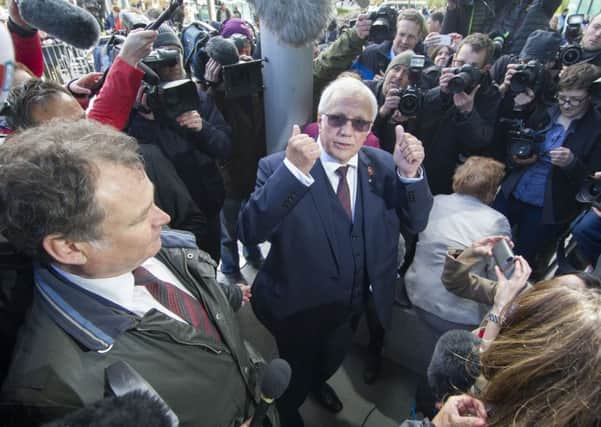Jayne Dowle: Justice for Hillsborough families '“ now the guilty must pay price


In my family too, it has defined a moment to mark down; it has much to do with the love of football, but also it has at its roots an understanding of familial bonds, community, kinship, and let’s be honest – working class people – pulling together and never giving in.
The voices and testimonies of the Liverpool fans who survived, and the families who fought for the truth for so long, are seared in our memories. Who we shouldn’t forget, though, are the people of Sheffield who never wavered in their support, either on the day it happened, or in the aftermath.
Advertisement
Hide AdAdvertisement
Hide AdApart from the terrified fans, and the discredited police, the Sheffielders who opened up their homes to the victims – because as the inquest has ruled, there were nowhere near enough ambulances – were the ones who saw at first-hand what happened. Their recollections and testimonies, delivered in voices that never expected to speak to the world, do not lie. Others do, as we know.
Throughout the battle to find out what really happened at the FA Cup semi-final, what has stood out is the determination of ordinary people to have those voices heard.
And what has stood out too is the overwhelming and consistent betrayal from South Yorkshire Police. The very people who were there to protect and serve were found to have done the opposite. While there is no doubt that individual officers on the pitch suffered long-term effects from the trauma, the behaviour of others, especially senior officers, was reprehensible.
Blaming “drunken” fans. Doctoring statements. The police commander, David Duckenfield, lying blatantly about leaving a turnstile open. The disgusting “black proganda” driven by his colleagues. And let’s not forget the disregard of certain politicians – including “man-of-the-people” Tony Blair – for a new investigation. Or the filth propagated by certain sectors of the media about grieving Liverpool fans.
Advertisement
Hide AdAdvertisement
Hide AdIn contrast, who could doubt the conviction and sincerity of those who spoke for both the survivors and the victims? Here we had people, who, until that terrible day, just expected to go about their lives, enjoying their football and raising their families. What does it tell us about those who were brave enough to speak up and continue to speak up on behalf of those who couldn’t?
The new inquest into the deaths took two painstaking and gruelling years. However, this came on the back of not just years, but decades of relentless campaigning.
What does it tell us about people like Trevor Hicks, the president of the Hillsborough Family Support Group?
Mr Hicks, who now lives in Keighley, West Yorkshire, lost two daughters in the disaster – Sarah, 19, and 15-year-old Victoria. His humility is heartbreaking. Speaking after the verdict, he struggled to find the words to express himself. He could only conclude: “I’d like to think that I’ve done my best to make them proud.”
Advertisement
Hide AdAdvertisement
Hide AdAs a parent, I can only look at him in awe. I knew at lunchtime on Tuesday that the coroner had finally ruled that the Liverpool fans were unlawfully killed. When I got home later though and found my teenage son back from school and on his iPad, it was the first thing he wanted to tell me. He looked up and called out. “Mum,” he shouted. “Justice has been done.”
He didn’t have to explain. He didn’t even have to say the word “Liverpool”. Football runs through Jack’s veins. He has played the game since he was four-years-old. For several years, he trained with the academy at Sheffield Wednesday. Every Tuesday night I would sit there outside the dome on Middlewood Road, waiting for him. As we drove home under the towering shadow of the Leppings Lane end, we never passed it without thinking of the 96 who died.
You see, Jack has supported Liverpool, as well as his home town team of Barnsley, since he was a toddler. It was actually a former colleague at The Yorkshire Post who formed his allegiance. Knowing he loved football, she sent him a Liverpool scarf as a present, and it has hung proudly in his room ever since. Football allegiance is like that. It can come about through chance events. A person you meet, a random conversation you have, a combination of unpredictable events.
Just like the chances of being in that stand on that day at that time at that ground. Every football fan in the country will recognise with a pang how cruelly fate can operate. They, too, will feel that justice has indeed been done. However, justice is not the end. It is only the beginning of the end. What is needed now are answers – why did those to blame refuse to be held to account for so long, and how must they be punished?
Justice may done, but vengeance is yet to be met.